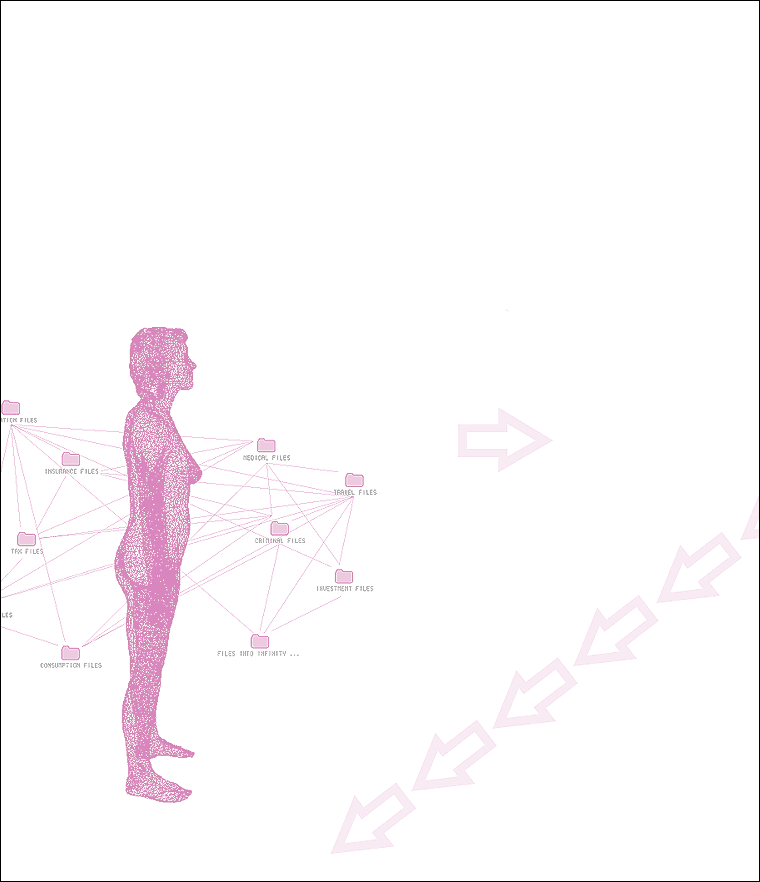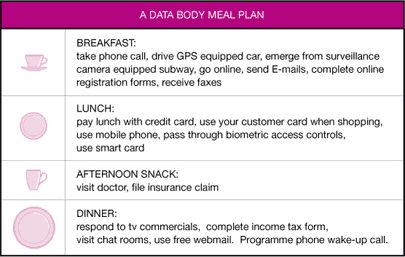 |
 |

The new body. The cyber age has virtualised the body. For an increasing number of activities, we no longer need to be physically present. But in the shadow of this virtualisation, a new type of body has been born: the data body. Instead of flesh and blood, the data body is made up of information. It is the total collection of files connected to an individual.
Feeding the data body. As we move in digitised environments, we leave behind traces. Traces which are food for the data body.

Data body self defence. The constant feeding of the databody is a default mechanism of digitised societies. Therefore, starving the data body by keeping personal data to oneself is a new kind of civil disobedience.
"One of the fundamental contrasts between free democratic societies and totalitarian systems is that the totalitarian government … relies on secrecy for the regime, but high surveillance and disclosure for all other groups, whereas in the civic culture of liberal democracy, the position is approximately the reverse." (Simon Davis, Director of Privacy International)
Data body economy. The rationalisation of the economy follows the imperative of data creation and capturing. In the logic of the data body economy, anonymous economic transactions such as paying in cash or growing your own carrots are considered as a loss of data which must be avoided. As a consequence, people are seduced or structurally forced into a behaviour which is good for the data body economy.
Dataveillance - surveillance for growth. The borderline between politically motivated surveillance and economically motivated data collecting has dissolved into a cloud. Data body economy has become the economic wing of the surveillance state.